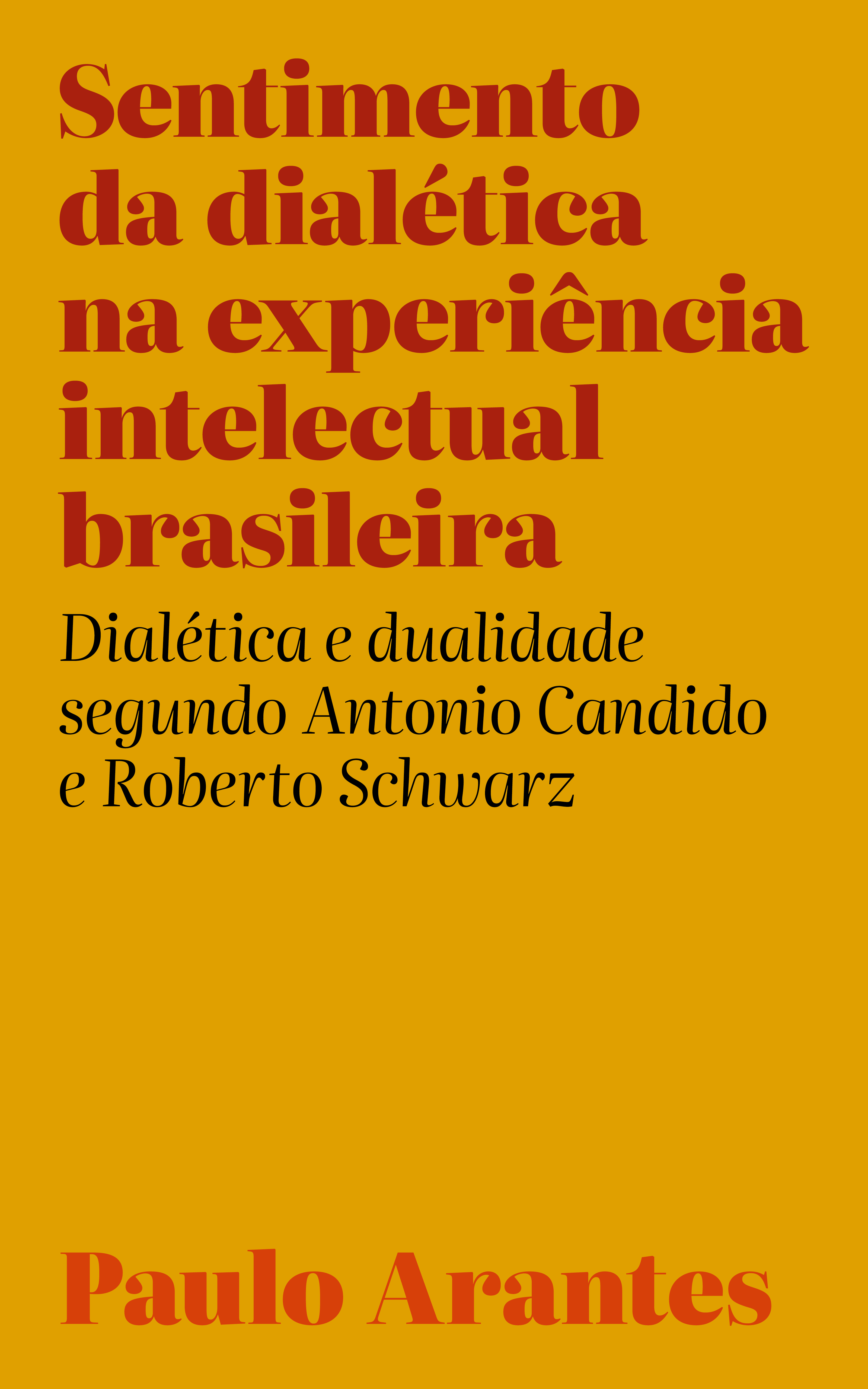The Sense of Dialectics in the Brazilian Intellectual Experience
Dialectics and duality according to Antonio Candido and Roberto Schwarz [1992]
1992
Synopsis
What are the premises of a truly dialectic criticism? This is the question that Paulo Arantes seeks to answer in this book from 1992, where he analyzes the works of two major Brazilian critics: Antonio Candido and Roberto Schwarz. The interest goes far beyond the literary field. The author contextualizes the critics’ writings, discusses the explanatory theories on Brazilian reality developed at that time, and demonstrates how, in their most distinctive works, Candido and Schwarz sensed a structural homology between literary work and social organization that had a great impact on the study of culture in a peripheral country. As the author puts it: “For the first time, cultural criticism, based on a review of the implications of a dual society, thoroughly examined the artistic-ideological effects of capitalism’s uneven and combined development.”
Bento Prado Jr., in a review published here as an afterword, states that “with Paulo Arantes’s The sense of dialectics (O sentimento da dialética), we have not only a great reflection on Brazilian literary historiography. Much more than that (which is no small feat), it is the Brazilian philosophy exceeding the narrow boundaries of its relatively ‘technical’ seminars (which usually ignore that the essence of philosophical ‘techniques’ is never really technical) to dive into the ‘experience’ and Brazil itself”.
Keywords: Antonio Candido, Roberto Schwarz, education, dialectics, duality, dualism, marxism, Brazilian literature, literary criticism, Brazil, national consciousness, colonial system, slavery, trickery, criticism of cultural, underdevelopment, dependency, periphery, Machado de Assis, Aluísio Azevedo, Maria Sylvia de Carvalho Franco, Caio Prado Jr., Florestan Fernandes, Fernando Novais, USP.

Series
Categories
License

This work is licensed under a Creative Commons Attribution-NonCommercial-NoDerivatives 4.0 International License.


